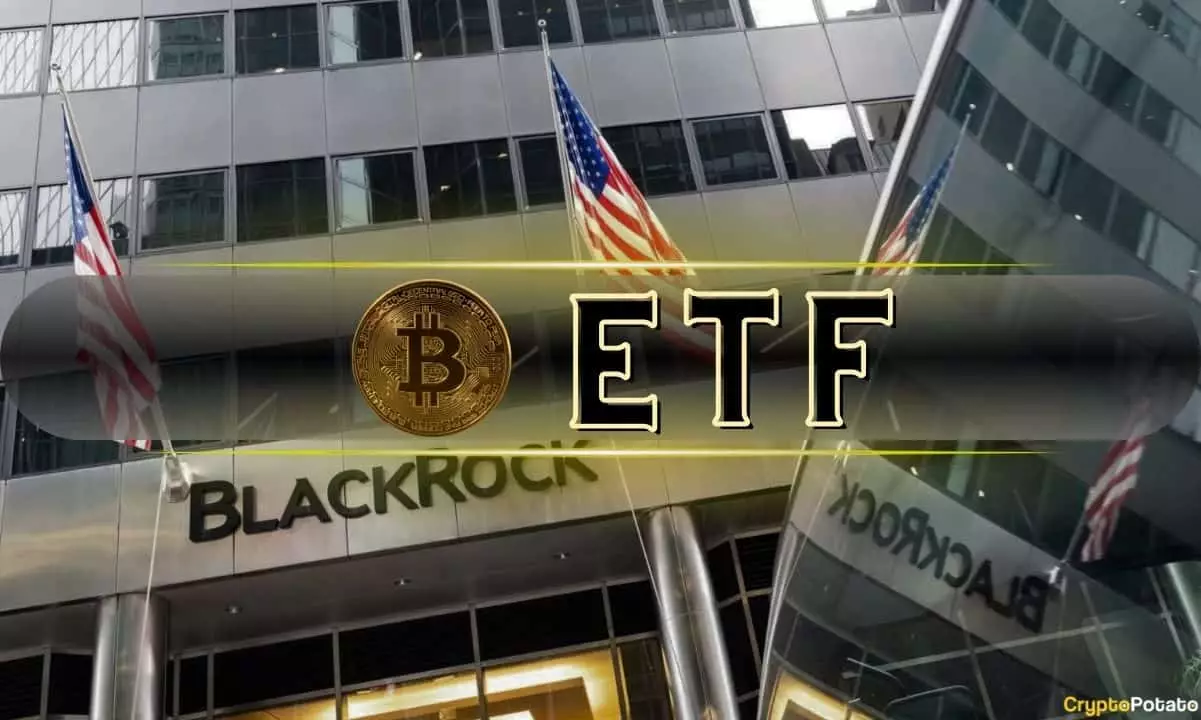On October 21, a notable shift occurred in the cryptocurrency investment landscape when investors acquired a staggering 4,869 BTC, equivalent to approximately $329 million, through BlackRock’s iShares Bitcoin Trust (IBIT). This influx is particularly remarkable considering the backdrop of a market slump, where many competing spot Bitcoin exchange-traded funds (ETFs) in the United States were experiencing significant outflows. The distinct contrast in IBIT’s performance speaks volumes about its positioning and the confidence investors place in it, especially when compared to the broader trends affecting other funds.
Fidelity’s Bitcoin ETF (FBTC) witnessed a modest inflow of $5.9 million during this period, marking its seventh consecutive day of positive movement. In stark contrast, ETFs from firms like Bitwise, Ark 21Shares, VanEck, and Grayscale experienced negative flows, highlighting a troubling trend as the market began to retrace its steps. The difference in the fortunes of these funds presents an intriguing narrative; while some experienced renewed investor confidence, others faced the grim reality of capital withdrawal. This dichotomy questions the underlying factors influencing investor behavior amid a fluctuating market environment.
Despite a general downturn, the inflow into IBIT represents a significant achievement in the realm of ETFs. Over the past week alone, the fund has accumulated a staggering $1.47 billion, marking it as one of the most successful launches since its inception in January. ETF Store President Nate Geraci emphasized that such inflows position IBIT within the top five ETF launches projected for 2024, reflecting the trust and enthusiasm among crypto investors. Bloomberg ETF analyst Eric Balchunas reinforced this sentiment by noting that the assets under management for IBIT now rank in the top 2% among all ETFs currently available.
The Ethereum Struggle
On the contrary, the same day proved less favorable for Ethereum-focused ETFs, which collectively saw net outflows of $20.8 million. Grayscale’s ETHE fund has been particularly affected, as it experienced an additional $29.6 million exodus, illustrating a concerning trend for Ethereum funds overall. This ongoing retrenchment, which has seen over $3 billion withdrawn from Grayscale’s offerings, hints at broader concerns regarding high management fees and the attractiveness of alternative investments.
Market Corrections and Future Outlook
The larger cryptocurrency market has struggled under the weight of recent corrective measures. Bitcoin, after reaching a multi-month peak of $69,300, retreated by approximately 3.3%, settling below the $67,000 mark before moderately recovering to around $67,500. Altcoins faced even steeper declines, as total market capitalization fell to approximately $2.44 trillion. These fluctuations underscore the volatile nature of cryptocurrency investments, but the impressive influx into BlackRock’s IBIT offers a glimmer of optimism amid the turbulence, suggesting a possible shift in investor sentiment towards more stable ETF options.
While the landscape remains complex and fraught with risks, BlackRock’s ability to attract significant capital during a downturn presents a compelling case for its strategy and long-term potential in the cryptocurrency arena.

